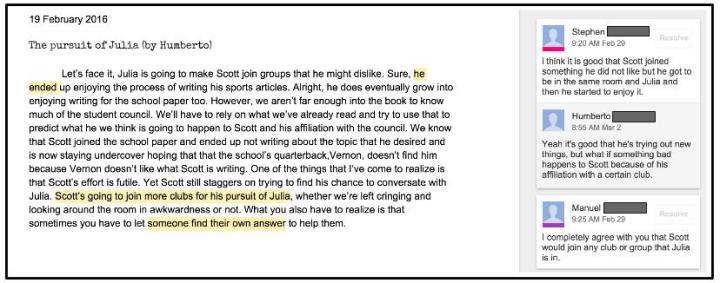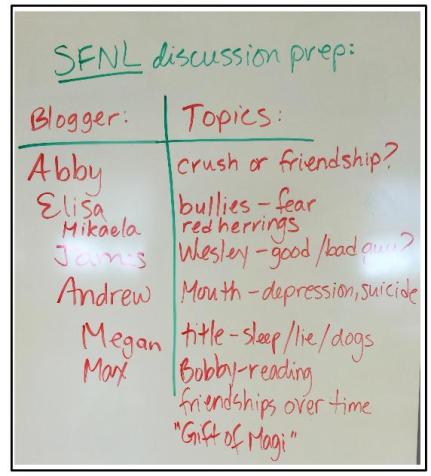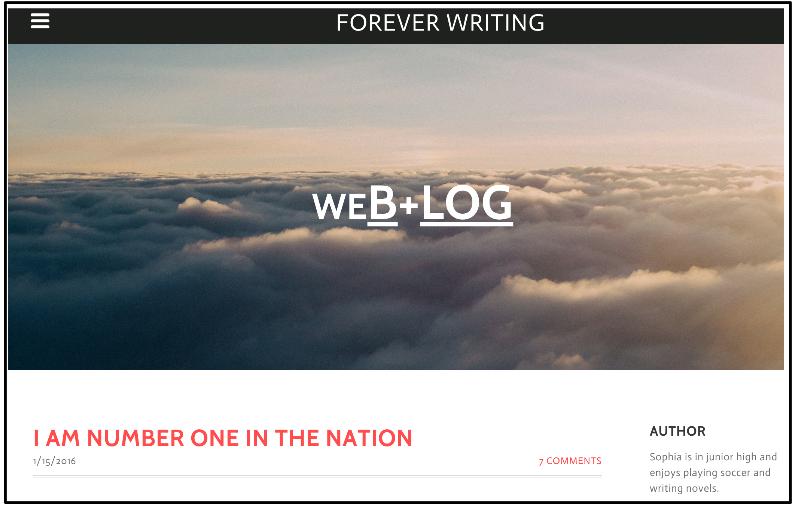Blogging isn’t new. In fact, blogging came on the scene a full decade before my current students were born. But have our students discovered the power of their own blogging?
If your students are writing, I challenge you to move that writing to blogs. And if your students aren’t writing, blogging is one way to change that. When students move their work from paper to blogs, they:
- publish their writing to a bigger (and more significant) audience;
- can easily access and read their peers’ writing;
- can engage in online conversations in response to their peers’ writing;
- learn to work online for academic purposes;
- learn a variety of digital skills within a meaningful project.
For a few years now I have had my students create digital portfolios using Weebly.com, where they showcase and reflect on the learning they have done throughout the year. I like Weebly because it is a free and easy program that allows students to create beautiful and personalized websites with their own blog pages.



So this year my students built their Weebly sites and published one blog post… and then, in ongoing efforts to regulate students’ access to the internet, our district tightened up the filter. And just like that, we lost access to Weebly.
Sigh. Such is life in a tech-integrated classroom. But we know from experience to think fast, change gears, and pivot to the back-up plan.
Did you know that Google Docs make pretty good blogs? Students write their blog post in a Doc, and then their classmates use the insert-comment option to respond to the post. The authors are then able to read and reply to the comments, and shazam, we have our own blogs with comment threads. Take that, filter.

Last week my students finished reading Sleeping Freshmen Never Lie, by David Lubar, and they were eager to talk about the story. Since they had already blogged their responses throughout the reading, they had a wealth of resources from which to draw for a class discussion.
At the start of class they went to our document of blog links and read entries from six of their classmates’ blogs. In their notebooks, they jotted down the names of bloggers to recommend and topics for our discussion. They shared out what they found and I started a list on the board:

(Bonus points for Mikaela for pointing out the red herrings!)
Then we moved our chairs into one huge circle (thank you, flexible furniture with wheels!) so we could see each other as we talked about these big issues.
I am so proud of and impressed by the discussion my students had. They are 8th graders, which means that sometimes they have the insight and sensitivity of adults, grappling with issues like poverty and the presidential election; and then the very next day (or minute) they are more like 4th graders, rediscovering the humor of bodily functions. But after reading each others’ blogs, they entered our discussion understanding that many of their peers, like Lee and Mouth, have been victims of bullying. They saw themselves in Scott’s family dynamics, as well as in the familiar cliques of Scott’s classmates. They recognized the angst Scott experienced as he pined for Julia while discovering unexpected friendship in Lee. And although depression and suicide may seem like scary and far away concepts for 8th graders, my students discovered through blogging that some of their classmates had been close to those very situations. Their class discussion was polite, mature and sensitive, and covered a wide range of topics inspired by the novel. With all of their blogs as starting points, they could have continued their conversations well past the final bell.
Blogging is a natural for English class (and a powerful platform for English language learners), but teachers and students are also discovering the benefits of blogging in classes like math, science, history and more across the curriculum.
How could your students benefit from blogging? What could they blog about that would further their own learning, as well as prompt their classmates to deeper thinking?


Terrific!
Sent from my iPhone
>